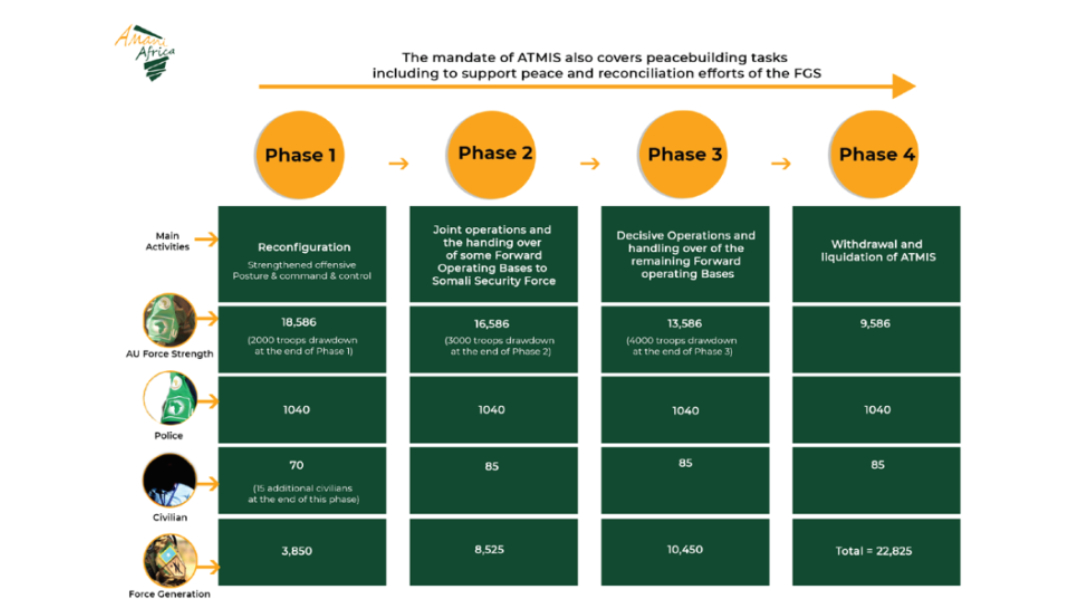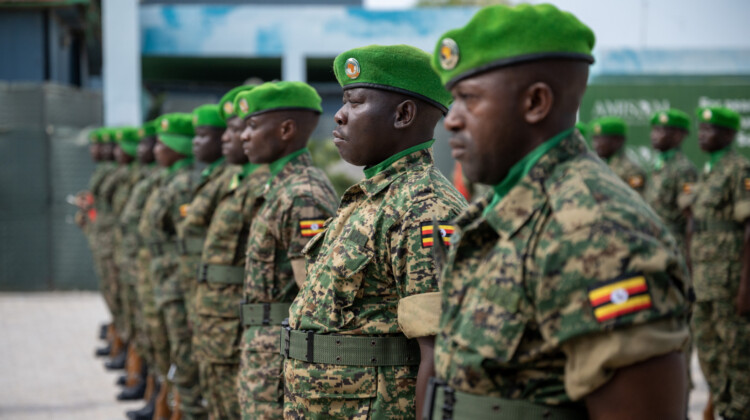President Hassan Sheikh Mohamud, who took office promising an “all-out war” against Al-Shabaab, now faces the challenge of addressing significant setbacks in the military campaign.
Recent attacks on Somali forces in the Galguduud region have exposed vulnerabilities in the country’s frontlines and necessitated a reorganization to maintain momentum in countering the Al-Shabaab threat.
The Case for a Technical Pause and International Response
The letter requesting the delay argues that the unexpected setbacks and the need for military reorganization justify the pause in the troop withdrawal. It emphasizes that this temporary delay is essential to ensure Somalia’s enduring peace, stability, and prosperity.
“This unforeseen turn of events has stretched our military forces thin, exposed vulnerabilities in our frontlines and necessitated a thorough reorganisation to ensure we maintain our momentum in countering the Al-Shabaab threat,” the letter read, cited by AFP News.
The government remains committed to the complete withdrawal of ATMIS forces by the end of 2024, underscoring its long-term vision for national security.
The request for a delay in troop withdrawal comes as ATMIS had already initiated the second phase of drawdown, with 3,000 troops scheduled to depart by the end of September. This presents a diplomatic challenge for the United Nations and its member states.

During the handover on September 17, Lieutenant Colonel Philippe Butoyi, the ATMIS commander for the base in Hirshabelle, said in a statement how they have “observed progress on the battlefield, showcasing the growing effectiveness of Somali Security Forces in securing the nation.”
“We have seen the forces attack, seize and hold ground,” he added.
The international community’s response will likely depend on its assessment of the security situation in Somalia and the government’s ability to effectively combat Al-Shabaab without external support.
The implications of delaying the troop withdrawal are multifaceted. On the one hand, it could provide Somalia with additional time to strengthen its security forces, address vulnerabilities, and make progress in its fight against Al-Shabaab. However, it also prolongs the presence of foreign troops in the country, potentially straining diplomatic relations and raising questions about the effectiveness of the international mission.
~
Somalia’s request for a delay in the troop withdrawal reflects one of the many ongoing challenges in achieving lasting peace and security in the region. The Al-Shabaab insurgency remains a formidable threat, and the Somali government is grappling with setbacks in its military campaign.
In the initial phase, about 2,000 AU troops departed by June 30 this year, marking a significant step in Somalia’s transition of security responsibilities, which will face a complex and delicate task ahead. This transfer of authority included the handover of six bases to the Somali forces. At its full strength before the troop reductions, ATMIS consisted of approximately 20,000 uniformed personnel drawn from Burundi, Djibouti, Ethiopia, Kenya, and Uganda, signifying a substantial international commitment to stabilizing and securing Somalia.
The outcome of this decision will have profound implications not only for Somalia but also for regional stability in the Horn of Africa.










COMMENTS